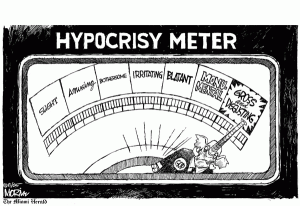 Amanda Todd. Canadian. 15 years old. Dead. Another bullied, angst-ridden, self-abusing depressed teen to add to the list of those whose lives were cut too short. In a word: tragic.
Amanda Todd. Canadian. 15 years old. Dead. Another bullied, angst-ridden, self-abusing depressed teen to add to the list of those whose lives were cut too short. In a word: tragic.
Upon release of the news, discourse from concerned parents relating to the risks of social media use and the increasing need for “internet policing” abounded. While these concerns are most surely valid, Todd’s suicide is not merely an indication that bullying in the 2000s has escalated to a new level that we, as a society, have yet to come to grips with. Greater than this, is what lies at the deeper root of the problem: the motivations behind the very actions of Todd that served as the impetus to her “cyber-bullying” conundrum.
“Why”, we should be asking ourselves, “would anyone go to such an extent to seek validation from a complete stranger in regard to their physicality?” What does this say about what we’re teaching our youth? More importantly, what does this say about our societal standards for appearances and sexuality and the high value we seemingly place on both?
While a debate on consumerism and its mandate to make us all feel inadequate so that we buy more and more items to fulfill the very voids it leads us to believe we possess would prove illustrative, again I’d like to delve deeper to get at the origin of why “industry” seems to have such a hold on us…well at least some of us, that is.
Now I’m sure all of you are at least superficially familiar with the pervasive “nature vs. nurture” debate. Further, I’m sure you’ve all heard that the current consensus in social science academic circles is that both elements are said to influence us relatively equally throughout our initial stages of socialization. In other words, it’s not simply WHAT we’re born with (ie: our DNA/inherited genes) nor WHERE/HOW we’re raised (ie: our environments). But instead, it’s how these two factors work together symbiotically that make us into the individuals we become. Allow me to explain more in-depth:
Let’s say there was a child who was born with an above average IQ “potential” (ie: nature). Due to unfortunate financial circumstances however, he was raised in a ghettoized neighbourhood where he attended primary and secondary schools that lacked guidance counsellors, extra-curricular activities and additional support resources.
His parents both worked multiple jobs that just barely allowed them to cover the household expenses; accordingly, they were frequently exhausted when they got home at the end of the day. As a consequence, the little boy was commonly alone without positive adult supervision. Moreover, even when his parents were physically present, he likely was not receiving the support, love and guidance he required from them.
While this child started life out with the “potential” (ie: nature) to achieve strong grades that could lead to a university education and an associated higher end career, because of his environmental upbringing (ie: nurture), he was never able to fully flourish.
At this point it is worth clarifying that the term “environment” as defined in the nature vs. nurture paradigm encompasses far more than just the tangible physical spaces one occupies throughout his/her life. As the above example demonstrates, one’s environment too consists of the people with whom we interact, the kinds of interactions that take place and the messages we receive. Whether our interactions are direct (ie: someone speaking with us in person), indirect (ie: receiving information from a tv commercial), one-way (ie: a lecture), reciprocal (ie: a conversation between friends), verbal (ie: someone saying they love you) or nonverbal (ie: someone giving you a hug after a bad day) is irrelevant – ALL of these modes of communication can and will influence you, if you allow them to. That my friends is the key: the concept of “agency”: the capacity of individuals to act independently and to make their own free choices.
Now, as you reach adolescence, the impact of “nurture”, especially as it pertains to social and media influences, shifts into high gear. The cause? Quite simply the fact that this is the first time in your life you truly get a chance to establish your own sense of identity! Part and parcel to this process, of course, is a pressing desire to rebel from all sources of authority, particularly that of your parents and their belief systems (Ah we have so much to look forward to when we become parents ourselves!)
In other words, as you reach this age, you become psychologically “primed” to pay close(r) attention to messages that relate to concepts of “self-expression”, “self-discovery” and “self-fulfillment” given that these topics are particularly relevant to the pressures you are experiencing in regard to “making something of yourself” and/or “finding out who you are” and “what cliché you belong in.” Wouldn’t you know it? These are the VERY SAME concepts that so many advertisements and media images try to sell us!
In reference to females specifically, the media teaches our girls that being “beautiful”, “sexy”, “desirable”, “attractive”, “sexual” and so forth are the NUMBER ONE KEYS to success, independence and confidence (Don’t get me started on the equally disturbing and damaging messages that we indoctrinate onto our boys). With all of this in mind, what I’m getting at is that it’s easy to see why young adults oftentimes find themselves falling into the “wrong” crowds and/or participating in questionable popularity/validation-seeking behaviours that may come back to bite them in the ass as was the case with Todd. No disrespect intended.
When we become adults, the hope is that we’ve grown past this stage and have a fairly strongly established sense of personal agency. For those of us born with more “follower-oriented” personality types, do not fear, agency and self-assertiveness can be taught and developed. There will, of course, always be “structures” to contend with in life that will limit our choices to a certain extent (ie: social class, religion, ethnicity, legislation, gender etc.) HOWEVER, in NO logical way that I can consider do said structures play a role in whether you allow yourself to buy into much of the advertised b.s. messages that are out there. Moreover, these structures also do NOT in any way prevent you from ditching people in your life that really only bring you down. The only thing that prevents either is an UNWILLINGNESS to practise introspection and “rational choice”. YOU are empowered with the choice to select when it’s worth your while to “tune in” and when you should quite frankly just “tune out.”
Rational (albeit mature) people, when presented with new information/messages, make the decision whether to incorporate or discard said information/messages based on a cost/benefit analysis. With this in mind, the next time you find yourself in a situation pondering whether you should allow yourself to be influenced (because remember it is a CHOICE), you need to ask yourself the following:
1) How can this information/influence help me in regard to my life, my goals, my dreams?
2) How can this information/influence hinder me in regard to my life, my goals, my dreams?
3) How would those significant in my life (ie: parents, friends, peers, teachers, spiritual advisors etc.) feel about this information/influence? Why do you think they’d feel that way?
4) Would my life be missing something valuable if I chose not to accept this information/influence?
5) Is this information/influence something I’d be comfortable passing onto others? If not, why?
Unfortunately in Todd’s tragic case, the life has already been lost. In your own and those of your future children however, you can make a difference. Teaching “(social) media savvy” isn’t enough. Negative influences can and will impact your life through a variety of sources. What needs to be taught more importantly is how to recognize these influences for what they are and how to make the “rational choice” not to allow oneself to get sucked in.

